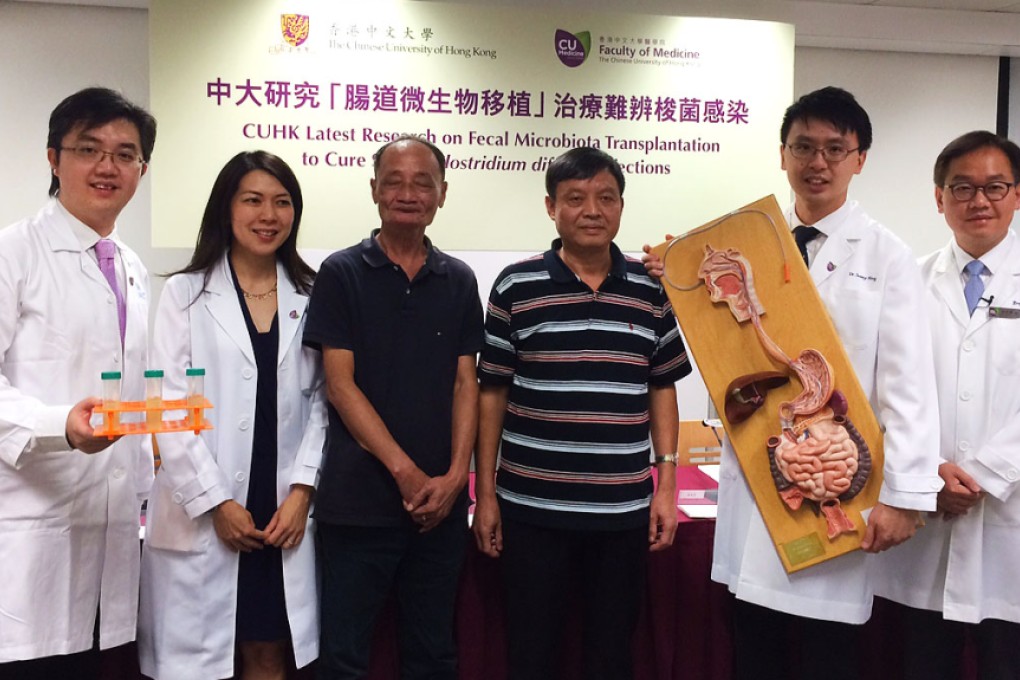Faecal extract transplants ‘three times more effective than antibiotics in treating intestinal disease’: Hong Kong study
Transplants using faecal extracts are three times more effective than antibiotics in treating a common and fatal intestinal disease, according to Chinese University researchers.

Transplants using faecal bacteria are three times more effective than antibiotics in treating a common and often fatal intestinal disease, according to Chinese University researchers.
The method, known as faecal microbiota transplantation, was shown in a university study to have a cure rate of over 85 per cent when treating patients with Clostridium difficile - the most common enteric infection reported in local hospitals and capable of causing serious dehydration and death.
Conventional antibiotic treatment only cured around 25 per cent of patients with the disease.

Professor Justin Wu Che-yuen, director of the university's Sin Hang Ho Centre for Digestive Health, said: "Microorganisms form a natural shield. But when a patient receives antibiotic treatment, the natural shield disappears and harmful bacteria could damage intestines and health."
In the procedure, 50 to 100 grams of faeces are taken from a healthy donor. The sample is diluted with sterile saline and filtered, then administered to patients either through a nasal tube, a colonoscopy or anal spray.